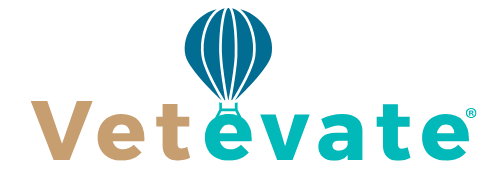When most people think of veterinary job boards, they naturally envision postings for small animal clinics, equine hospitals, or large animal practices. However, the veterinary field is much broader, encompassing various specialties including aquatic animal health. Aquarium jobs, particularly those involving the care of fish, marine mammals, and aquatic ecosystems, often require veterinary expertise or a closely related background. Because of this overlap, a veterinary job board can be an excellent resource for individuals seeking employment opportunities in aquariums, marine parks, research facilities, and aquatic rehabilitation centers. Many of the roles that aquariums hire for — including aquatic veterinarians, vet techs specializing in marine life, and aquatic health researchers — are posted on niche veterinary job platforms that cater to specialized fields beyond traditional veterinary practice.
The key to finding aquarium jobs on veterinary job boards lies in understanding how employers post these roles. Some postings may be labeled under exotic animal care, aquatic medicine, or wildlife rehabilitation rather than simply “aquarium jobs.” Therefore, candidates need to approach their search with flexibility and a strong understanding of the job titles and descriptions that match their skills and interests. By recognizing the broader connections between veterinary science and aquatic health, job seekers can leverage veterinary job boards as a strategic starting point in their search for aquarium-related employment.
Optimizing Your Strategy on a Veterinary Job Board
When you begin your search for aquarium jobs on a veterinary job board, it’s important to optimize the way you approach the platform. Rather than relying solely on a direct search for the word “aquarium,” you should use a variety of keywords that relate to aquatic animal health. Terms like “marine veterinarian,” “aquatic animal health,” “exotic animal vet,” “wildlife rehabilitation,” and “zoological medicine” often yield more results that are aligned with the responsibilities found in aquarium settings. Understanding and experimenting with related terminology can open up far more opportunities than a narrow search would allow.
Another critical aspect is setting up customized job alerts based on these broader keywords. Most veterinary job boards allow users to create profiles and receive email notifications when new postings match certain criteria. Setting alerts for terms related to aquatic and exotic animal care ensures that you won’t miss newly posted opportunities that may not use the word “aquarium” directly but still fall within your area of interest. In addition, because some positions might be listed under broader categories such as “wildlife” or “zoological,” browsing through larger categories rather than relying solely on specific keyword searches can uncover hidden gems that a more targeted approach might miss.
Tailoring Your Resume for Aquarium Roles
Once you find potential aquarium-related jobs on a veterinary job board, the next step is to make sure your resume and application materials are tailored specifically to the aquatic field. Even if your background is rooted in general veterinary practice, emphasizing transferable skills is crucial. Employers in aquarium settings look for candidates who have experience with aquatic species, understand marine biology principles, are familiar with water quality management, and can perform veterinary care specific to fish, amphibians, reptiles, or marine mammals.
It’s important to highlight any academic coursework, internships, volunteer work, or professional experiences that demonstrate competence in aquatic animal health or exotic animal medicine. Certifications such as Aquatic Animal Health certificates or specialized training from programs affiliated with veterinary schools or marine biology institutes can be major differentiators. In your cover letter, showing passion for aquatic animal welfare, conservation efforts, and collaborative veterinary care within a zoo or aquarium setting can also make a strong impression. Tailoring your application materials in this way signals to employers that you not only meet the veterinary qualifications but also bring a deep, relevant interest in aquatic and marine animal health.
Networking can further boost your chances of securing an aquarium role. Even if you find the job through a veterinary board, reaching out to current or former employees of the aquarium to learn more about the position and the organization’s culture can help tailor your application and possibly even provide inside tips or referrals. Many aquariums also participate in professional organizations or industry events, and mentioning any membership or participation in those groups within your application can position you as a more credible and committed candidate.
Your Career Path in Aquatic Veterinary Medicine
Using a veterinary job board to land your first aquarium job can be the first step in a rewarding and unique career path. Aquatic veterinary medicine is a growing but highly specialized field, and building a long-term career requires ongoing education, networking, and strategic positioning. Many professionals who start in aquariums eventually move into advanced roles such as lead veterinarian for a marine park, director of aquatic animal health at a research institute, or consultant roles for wildlife conservation organizations. Others transition into academic roles, teaching future generations about marine biology and aquatic veterinary science.
Continuing education is critical in this field. Pursuing additional certifications in aquatic medicine, participating in internships at renowned aquariums or marine research centers, and staying involved in professional organizations like the World Aquatic Veterinary Medical Association (WAVMA) can enhance your skills and marketability. Attending veterinary conferences that offer aquatic tracks and engaging with research published in marine animal health journals will also help you stay informed about the latest best practices, emerging diseases, and treatment innovations.
Even after securing a job through a veterinary board, maintaining an active presence on these platforms can help you track the market and find future opportunities. Some professionals use job boards not just to find their next job, but also to stay aware of how the field is evolving, what new specialties are emerging, and where the next opportunities might arise geographically. In some cases, professionals even use these boards to connect with employers in international markets, expanding their career opportunities globally.
A long-term career in aquatic veterinary medicine often blends clinical skills with research, education, conservation, and public engagement. By strategically using veterinary job boards to enter the field, and by continuing to build specialized expertise, passionate professionals can enjoy a fulfilling career that combines veterinary care with the stewardship of some of the planet’s most fascinating and vulnerable creatures.




